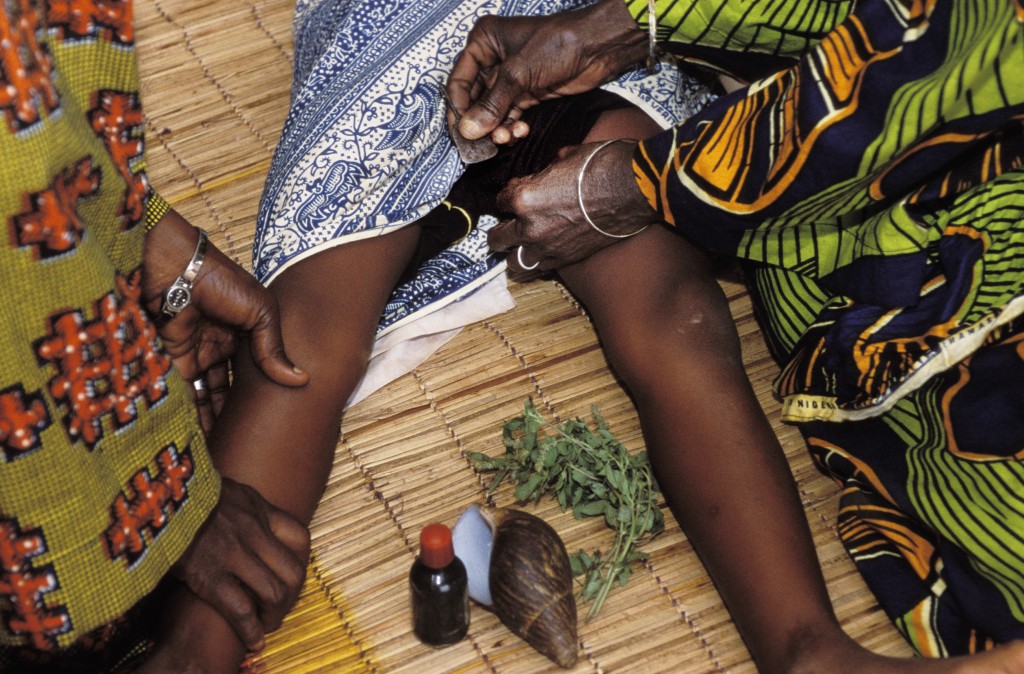
Yesterday, February 6, 2013, marked the tenth anniversary of the International Day of Zero Tolerance to Female Genital Mutilation/Cutting (FGM/C), also known as female circumcision or female genital cutting (FGC). The day was established by the United Nations to generate awareness of FGM and to promote its eradication. The day was established ten years ago, on February 6, 2003 by Stella Obasanjo, the First Lady of Nigeria, with the official declaration “Zero Tolerance to FGM” in Africa during a conference organized by the Inter-African Committee on Traditional Practices Affecting the Health of Women and Children (IAC). Following the IAC’s declaration, the U.N. Sub-Commission on Human Rights adopted the day as an international awareness day.
An estimated 100 to 145 million women and girls have been victimized by the unnecessary and brutal procedure of Female Genital Mutilation (FGM), while another 3 million girls are at risk each year. FGM can be the partial or full removal of the external genitalia. FGM can often be fatal, especially when done in non-sanitary conditions and/or by non-medically trained persons. The fatal results of FGM can often be caused by excessive bleeding, transmission of disease or shock. The complications and the long-term effects of FGM can include: pain, infertility, difficulties in child birth, trouble with menstruation or urination, problems and extreme pain with intercourse, lack of sexual desire, no sexual stimulation, and mental illness. For the women and girls who are victims of FGM the pain and torture of the procedure are far from a one-time affair and both the physical and mental scars can last a lifetime.
In observance of the awareness day the U.S. Department of State’s Ambassador at Large for Global Women’s Issues, Melanne Verveer, opened and led a panel discussion this morning in Washington, D.C.
“Success is accomplished in partnership with community-based NGOs who help develop effective local solutions. But this is not just a local issue, we must all remain vigilant to the possibility that women and girls who are vulnerable to FGM/C live in countries around the world. In recent years there have been an alarming number of cases among Diaspora communities in Europe, Australia, and even the United States of families sending children back to their countries of origin to be cut.
The U.S. government supports the women and men around the world who denounce this egregious practice and act to abolish it. We have made tremendous progress over the past decade, but much remains to be done. We must all work together – men, women, grandfathers, grandmothers, community and religious leaders, governments, civil society, and multilateral organizations – to overturn deeply entrenched social norms that are harmful not only to women and girls, but to our families, communities and nations (Opening Statement).”
Ambassador Verveer was then joined by leaders and practitioners in the field including the Honorable Amina Salum Ali, Ambassador of the African Union to the United States, Dr. Nawal Nour of the Brigham and Women’s Hospital in Boston, MA, Bakary Tamba of the nongovernmental organization (NGO) Tostan in Senegal, and Jessie Hexpoor of the NGO Hivos in the Netherlands. The event was focused on raising awareness on the continued prevalence of FGM as well as the detrimental consequences to both women/girls and communities. The panel, which can be viewed here, sought to discuss current efforts — both positive and negative — to end FGM and solutions to address this continuation of harmful gender-biased practice. The event was a follow up to Secretary Clinton’s hosting of the first-ever event at the U.S. Department of State to commemorate the International Day of Zero Tolerance to Female Genital Mutilation last year.
In the last decade, significant progress against FGM has been made on a global scale as seen by the following Sate Department Progress Report. The biggest achievement being the recent Global Ban on FGM/C by the United Nations on December 20, 2012, after an African-led resolution calling all U.N. member states to criminalize FGM. The ban was then preceded by the 2005 Protocol on the Rights of Women in Africa, which has been ratified by 36 African States and calls for individual governments to ban FGM.
Nonetheless, while rates of FGM may have fallen in many countries and alarm bells are beginning to ring louder than before, the fight for zero tolerance is far from over, and efforts must continue both in countries where the practice has a long standing history and also in the West as the fight for gender equality and against sexual violence is global. The practice of FGM/C must be clearly seen as a human rights violation; thus, education and awareness on its long term effects must be a local, national and global priority. Additionally, laws must not only be established to outlaw these human rights abuses. FGM is not just a global health issue; it is a human rights issue rooted in gender-discrimination and must be seen as such. Therefore, laws must also address the severity of the crime if we are to see the end of this extreme form of gender-based violence.
Please see my previous posts on FGM, including: Successes in the Fight Against FGM (2012), Female Genital Mutilation (FGM) Awareness Day Passes With Little Notice (2012), Ending Female Genital Mutilation (2010), Is a Continental Ban Against Female Genital Mutilation on its Way in Africa? (2010), Are we closer to an end for Female Genital Mutilation? (2009), The Global Fight Against FGM (2008), Female Genital Mutilation Continues in Senegal (2007), Female Genital Mutilation in the UK (2007), Egypt Makes Huge Strides in Putting an End to Female Circumcision (2007), Girls Death in Burkina Faso Has Many Wondering If Laws are Enough! (2007)